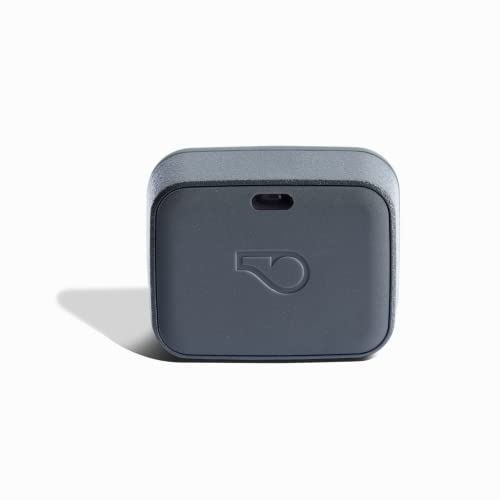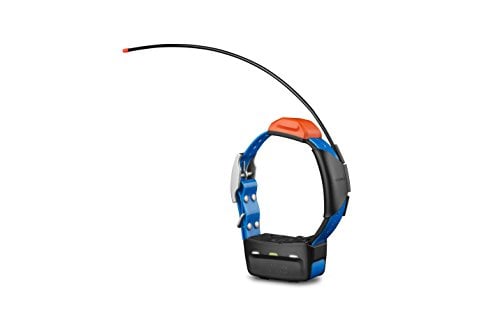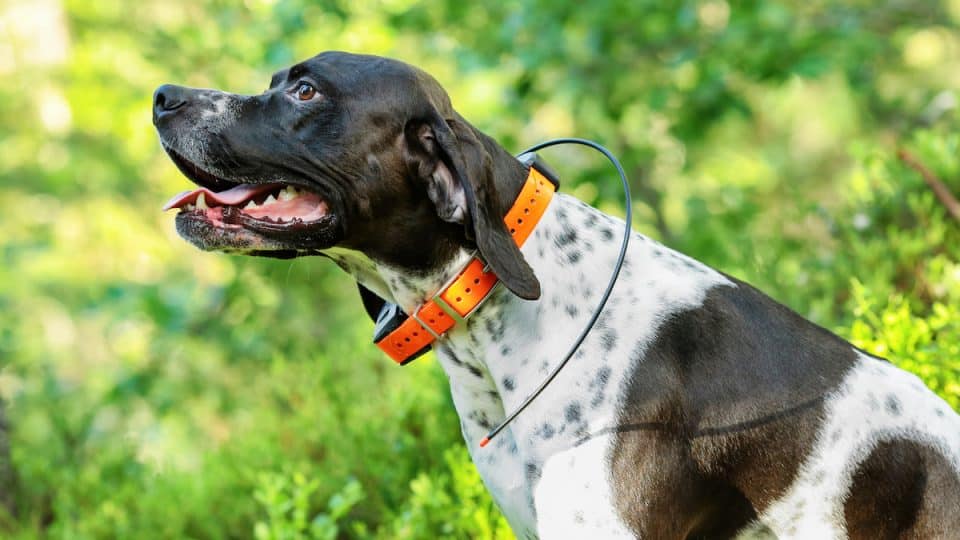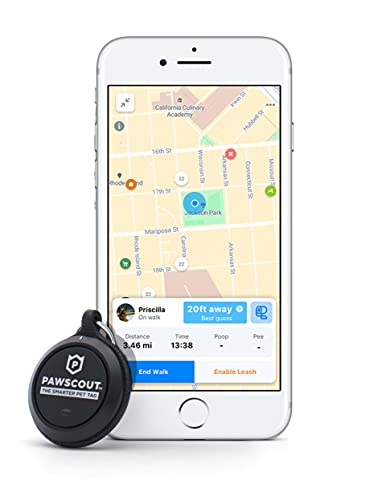- This post contains affiliate links. Read more here.
- Not a substitute for professional veterinary help.
From peace of mind and safety to in-depth insight into your pup’s daily activities, dog GPS trackers and collars promote a wide array of benefits. But they can also be costly, especially when some come with an added subscription fee on top of the original purchasing price. Plus different trackers rely on different technologies, and not all of them are effective everywhere.
So are dog GPS trackers worth it, and should you buy one for your pup? To find out, we take a deep dive into all things dog GPS—from testing and research to asking the experts.
How Dog GPS Trackers Work
To figure out whether a GPS tracker will be worth it, the first step is understanding what’s on the market. Not all dog GPS trackers are built alike, and the perks and key features they offer vary widely.
You can find GPS devices that offer:
- Geofencing—Setting up safe zones that will alert you when your pup leaves the area you’ve designated for them.
- Real-time tracking—Letting you keep tabs on your pup when they’re out with the dog walker, trainer, or another caretaker and showing you how long and where your dog was last active.
- Activity monitoring—Breaking down your pup’s daily, weekly, and monthly activity into steps, miles, or points.
- Health insights—Monitoring sleep, behavior, weight, and other health baselines.
- Social community—Ranking your dog’s activity levels against other pups with the same device, usually based on age, breed, and location. Some will even let you connect your own fitness tracking device so your pup can be your workout partner.
The way that dog GPS trackers work, however, depends primarily on the type of device.
For instance, cellular GPS dog trackers like the Whistle GO Explore have a built-in chip that relies on cell towers to ping the location of your pet back to your phone anywhere in the world—usually accurate by a block or so. These types of trackers require a subscription plan and only work when there’s service, making them a strong choice for dogs who live in locations with reliable cell coverage.
In our experience, Rover testers were able to use the Whistle to find their dogs consistently in urban and suburban environments (including those with buildings, water, trees, and open fields), and they reported almost no calibration delays for dogs on the move—the fewest of any tracker we tested.

Utilizing AT&T’s wireless network, the Whistle GO Explore sends alerts when your dog leaves their designated safe space and provides live location tracking.
Bluetooth trackers, on the other hand, pair with your phone via, you guessed it, a Bluetooth connection. Since they share your pet’s location in relation to your smartphone, these devices offer the shortest range and are better for precision tracking within a couple hundred feet. They’re typically affordable and come with useful complementary features.
The Pawscout pet tracker, for example, is lightweight with no monthly fees, which pet parents with smaller pups prone to hiding might find suits their needs. Plus, it offers access to a lost-pet community where other users of the app who come into contact with your lost dog will get an alert.
Apple AirTags are another kind of Bluetooth tracker, albeit with a twist—they use iPhones around the world to pinpoint your tag’s location. They rely heavily on passersby with iPhones to find your pup, but they cost a fraction of the price a true GPS device. Our testers found AirTags for dogs an interesting compromise for pet parents on the fence about full-scale devices.
Then there are the trackers built for the countryside. Usually extremely accurate (right down to the inch), devices like the Garmin dog GPS tracker don’t use cell towers, Wi-Fi, or apps, but rely on radio frequencies instead. Built into a collar equipped with an antenna, the Garmin tracker can help you locate your pup up to 9 miles away, making it a sturdy option for hiking, hunting, or long walks in the wilderness.
The price is accordingly steep, since you’ll need to buy a handheld tracker in addition to the collar. But pet parents with several dogs to track may find it more economical since one handheld device can track multiple collars.

If you need a sturdy option for hiking or hunting, the Garmin GPS Collar is hard to beat with its 9-mile range.
For a detailed breakdown of the most popular GPS devices on the market, read “The 8 Best Dog GPS Trackers.”
What the Experts Say about Dog GPS Trackers
Let’s start with the basics. If your pup is microchipped, do you even need to consider a dog GPS tracker?
The short answer is yes. Virtually no dog microchip in use today is equipped with GPS services to track your pup if they get lost. Microchips are still useful—after all, if someone finds your dog and takes them to a vet or shelter with a scanner, they’ll find the microchip with your contact information. But it doesn’t give you any power to track your dog.
That’s what a good dog GPS device can do: tell you exactly where your dog is at any given time.
So do you need a GPS tracking device? Are they a safety precaution all pet parents should use, or are they just for escape artists?
To find out, we spoke with two experts well-versed in dog GPS devices: certified dog trainer (CPDT-KA) Erin Richardson, owner of Modern Minds Dog Training; and training assistant Mallorie Valdez whose service poodle, Elijah, is an active user of the Fi collar and Fitbark tracker.
Both trainers agree that dog GPS devices can give pet parents extra peace of mind, especially if their dogs are more active outdoors. Richardson says they’re smart for pet parents who like to take their dogs off leash. “Even a dog with a near-perfect recall is at risk for getting lost when off-leash in an open area,” they say.
Valdez also says that they’ve been helpful when taking her pups on adventures. “When we go on a hike or out camping, I can not only track the dogs with the GPS,” she says. “But I can also look at their activity levels and adjust their food accordingly to make sure they get enough calories on those really active days.”
The devices aren’t without their issues, however. Richardson reports that in the early days, their GPS collar would alert them that their dog had left the property when she was actually just in her crate. But after a week, the problem was resolved, and the device has been fairly accurate ever since.
In Valdez’s experience, her devices have been pretty accurate, but she points out that some take longer to update the location than others, and some only track “steps” if you’re walking with your dog and have your cell phone with you.
She adds that she loves being able to set safe zones for her pups. “This feature has been super accurate and I really like the notification option,” she says.
Both trainers are also fans of the added insight that most dog GPS trackers bring to the table. In Richardson’s case, they’ve actually discovered they weren’t walking their dog as far as they thought they were. “It’s been really helpful in making sure she gets the exercise she needs to be healthy and happy,” they say.
Valdez agrees that GPS trackers are worth it if you want to know more about your dogs: “I’m able to check in at a glance to quickly see how active my dogs’ days have been, what their sleep quality has been like, and even notice trends if they aren’t feeling their best selves—like excessive itching and decreased activity levels.”
She adds, “If you love data and want to help ensure your dog is living their best life, then trackers can be a great tool to help you achieve those goals.”
Our own tests of the strongest GPS devices on the market largely agree—we’ve successfully tracked down our own escape artists (not a test we were planning to conduct) and been grateful for the peace of mind the devices offer.
Should You Get Your Dog a GPS Tracker?
While GPS devices aren’t perfect, they can be helpful in keeping your four-legged best friend safe and accounted for. Each type has its pros and cons, and the one that works best for you will heavily be dependent on where you live, your area’s service coverage, and how far you want to track your pet.
We think dog GPS devices are likely to find fans among pet parents who:
- Have dogs who are master escape artists
- Want to give their pups more off-leash freedom in safe areas
- Have pups who travel frequently between locations and caretakers
- Want more insight into their dog’s daily activities for weight loss, health management, or behavioral modification training
There are pet parents, however, who might want to consider other safety options like long lines, yard leashes, and fenced-in Sniffspots:
- Couch-potato pups who hardly stray far from home
- Dogs who live in especially rural areas with limited cell signals
- Pet parents who don’t want to keep up with subscription fees
- Dog guardians who work from home and already have a good idea of their dog’s day-to-day activity levels
How We Chose Our Dog GPS Trackers
The dog GPS trackers and collars featured here were selected based on a combination of our own hands-on testing, a comprehensive look at customer reviews across a wide variety of retail platforms, and interviews with behavioral experts. We’re also guided by the experience of living and playing alongside our own much-loved and strongly opinionated dogs, who are never stingy with their feedback.
Further Reading
- We’ve Located the Best Dog GPS Collar Trackers—Plus Non-GPS Options
- Does Your Dog Need a Fitbit? Experts on Why Dog Activity Trackers Are Trending
- The Best Dog Fitbits and Activity Trackers for Monitoring Your Pup’s Health and Fitness
- Review: How Does the Tractive GPS LTE for Dogs Stack Up?
- Review: The Whistle Go Explore’s Combo of GPS and Activity Tracking Is Hard to Beat




